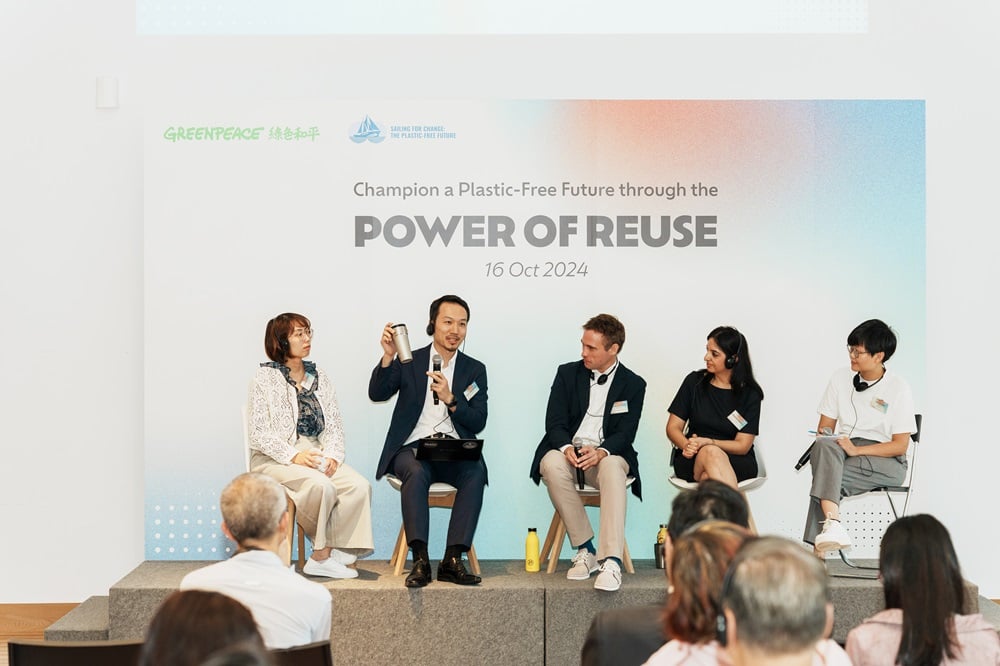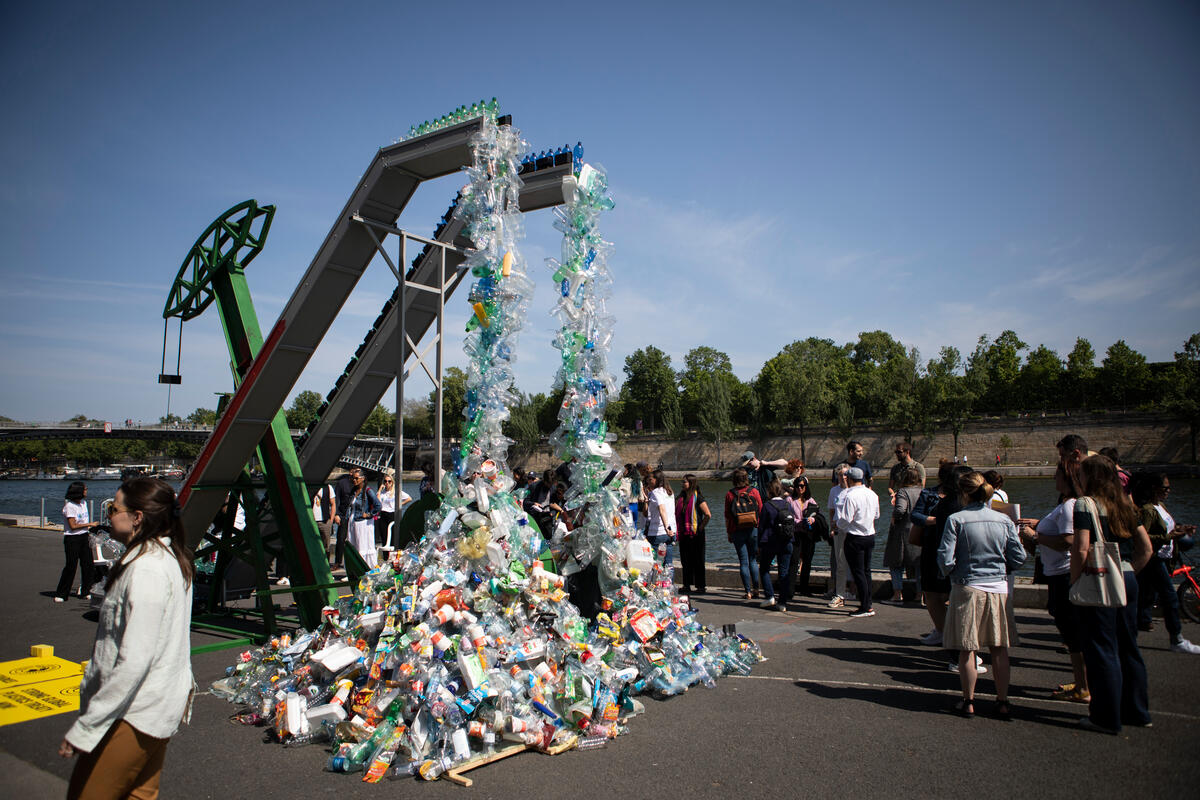Kaohsiung, Taiwan. October 29, 2024 – Ahead of the fifth Global Plastics Treaty negotiation(INC-5) Greenpeace held a creative parade today in the Linyuan Petrochemical Industrial Zone in Kaohsiung to challenge petrochemical expansion in Taiwan.
The parade featured a 3.5-meter-tall statue of Mazu, covering a distance of approximately 4 km and passing key petrochemical and plastic production facilities in Taiwan, including CPC Corporation’s Petrochemical Division, Formosa Plastics, and others. Through this creative and playful parade, Greenpeace highlighted that, as the world is now discussing plastic reduction and petrochemical over-capacity, Taiwan should also comprehensively review the necessity of expanding its petrochemical industry.
Greenpeace East Asia Taipei’s campaigner Chuang Hsiao-Ting, said
“The upcoming INC-5 for Global Plastics Treaty in Busan is an opportunity to end global plastic pollution, from production of plastic to its disposal. The fact that 99% of plastic comes from petrochemicals and natural gas is something many people overlook. We’re here in the Linyuan Industrial Zone to bring attention to that. We urge the Taiwanese government to promptly evaluate the local petrochemical and plastic production, speed up the phase-out of single-use plastic, and set ambitious goals for reuse economy system to become a leader in plastic reduction.”
The parade included nearly 40 volunteer activists carrying banners and flags that read, “Cut The Plastic Production Now” centered around Mazu, a popular folk deity known for watching over the people in Taiwan. Two large moon blocks, symbolizing “disapproval,” represented Mazu’s rejection of petrochemical expansion.
According to analysis[1], global petrochemical capacity has been in oversupply in recent years, with Asia facing a structural surplus, leading to persistently low or even negative profit margins. Nearly 24% of the world’s ethylene capacity is at risk of shutdown. In Taiwan, the petrochemical industry still primarily produces general-purpose plastics, with facilities like the Fourth Naphtha Cracker focusing on ethylene production. However, data from the 2024 Annual Report of the Chinese Petroleum and Chemical Industry Association indicates that Taiwan’s demand for ethylene has continually declined since 2019, with a particularly sharp drop in the past two years[2]. Taiwan’s ethylene capacity utilization rate dropped to 82.9% and 66.9% in 2022 and 2023, respectively, a steeper decline than the global rate, which fell to 82% in 2023. Nevertheless, in early 2024, the Executive Yuan approved a renewal project for the Fourth Naphtha Cracker, with a budget of NT$106.2 billion.
Chuang said:
“From global to local levels, there’s clear evidence of an overcapacity in petrochemicals. The petrochemical industry also increases plastic waste and environmental pollution, and worsens climate change. So, should the Fourth Naphtha Cracker really be expanded? The government needs a more comprehensive evaluation process, including safety and environmental assessment as well as considerations for employment needs and support for workforce transition. Without this, Taiwan risks falling behind global standards.”
The fifth round of negotiations on the Global Plastics Treaty will take place in Busan, South Korea, on November 25 to December 1, 2024. Since 2022, leaders from around the world have been negotiating this treaty, aimed at addressing global plastic pollution. The UN Environment Programme has described the Global Plastics Treaty as the most important multilateral treaty since the Paris Agreement in 2015.
NOTES:
[1] According to the latest research from Wood Mackenzie, as much as 24% of global ethylene capacity is currently at risk of permanent shutdown. Additionally, Alan Gelder, Vice President of Refining and Chemicals Research at Wood Mackenzie, noted that in recent years, factors such as the COVID-19 pandemic, the Russia-Ukraine war, and the Israel-Palestine conflict have led to economic recession and severe overcapacity, posing multiple challenges and uncertainties for the industry.
Contacts
Moffy Chen Communications Manager, Greenpeace East Asia Taipei, [email protected], +886987060898

-1.jpg)

